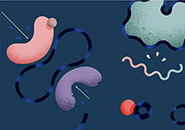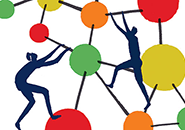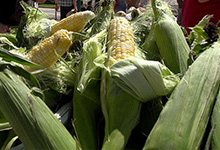Scientists estimate that about one quarter of autism spectrum disorders (ASDs) may be caused by mutations in the eggs or sperm of parents who have no history of ASD. Tracking the origins of some of these so-called sporadic mutations, HHMI investigator Evan Eichler and Jay Shendure, at the University of Washington, found that many of the mutations affect a large protein network that functions in cell cycle regulation and neuronal development.
Comparing autistic children’s genes to those of their parents, the scientists found more than 250 mutations unique to the children. Some mutations had been linked to autism in past studies; others were strong new candidates.
Analyzing the data further, the researchers found that the number of mutations increased with the father’s age, and that 39 percent of the mutations affected proteins within the same network.
“I was surprised to see so many of them as part of a highly interconnected set of proteins,” Eichler says. Skeptical at first, the scientists sequenced the exomes (the protein-encoding genes) of 50 nonautistic siblings; none carried the mutations found in the network. The research was published April 4, 2012, in Nature.
“Understanding how the mutations affect cells will require further experiments,” Eichler says, “but converging on a network is a step forward in the field of autism genetics.”







